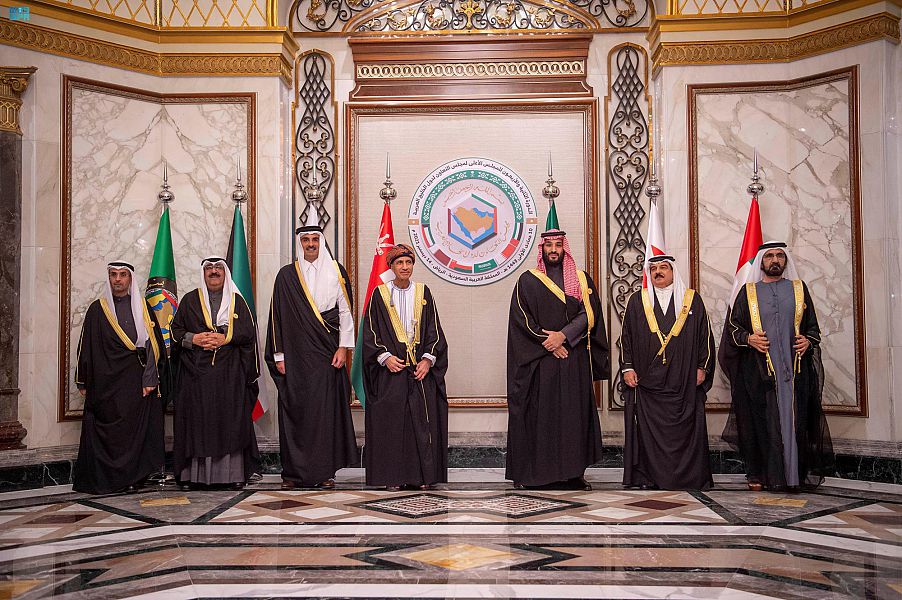Against the backdrop of the ongoing transformation of the world order, there is growing consensus that humanity has approached a conditional line (the so-called threshold), beyond which the global world seem to be collapsed. When it comes to the consequences of the collapse, however, the «stars» of global geopolitics (Russia, the United States, China, and the EU countries) are usually in the spotlight, while other states are remembered much less frequently. And for them the events that take place can have a completely different tone and, as a result, be interpreted in another way.
In this case, of particular interest are the Gulf states – and, to be precise, the group of countries – members of the Gulf Cooperation Council (GCC), also known as the «Gulf Monarchies» (Saudi Arabia, Qatar, UAE, Bahrain, Oman, Kuwait). Most of them gained geopolitical independence quite late (in the second half of the 20th century) and therefore approached the threshold at the moment of active internal transformation. However, unlike the states of Africa (which reached the threshold with a similar «starter kit»), the Arabians got their hands on an «energy lever», which at one time allowed them not only to withstand the «turbulence», but also to increase their own wealth, converting them into political weight. Therefore, the current geopolitical shifts for the Arabian monarchies are seen differently.
This approach, in turn, raises a number of questions. What ideological guidelines do the Gulf monarchies adhere to on the world stage today? How do they interpret the possible collapse of globalization? How can Russia build a dialogue with this group of countries in the current conditions? Let’s consider these points in more detail.
New times – new strategy
For a long time, the Gulf monarchies were perceived as conductors of US interests in the Middle East – due to Washington’s significant involvement in the design of national security and defense systems, as well as its tacit «technological dominance» in the region. Consequently, their position on globalization issues was more often interpreted as «agreed from above».
However, over time, the Arabians became closely in line with the Atlantic agenda, and they took a step towards developing a dialogue with other poles of power, expanding interaction with the Russian Federation, China, India and a number of other non-Western players, presenting this as an element in the construction of a global world. In addition, ambitious projects to deepen cooperation (such as the unification of legislation), expand the dialogue of cultures along the West-East line, and comprehensively change the image of the Gulf monarchies (the «Vision» strategies) have come to the fore in the GCC space. A similar shift was later interpreted as the step of the Arabians into the global world order.
At the same time, despite the apparent interest in maintaining global harmony, there is confusion among the Arabian elites. Statements by Arabian leaders about the need to develop global cooperation alternate with calls to build a “new world”; Social, economic and cultural protectionism «went on the rise» (a vivid example of it was the World Cup in Qatar), there has been a decrease in the pace of regional integration (up to a crisis of individual initiatives).
Positive or negative trend?
It should be noted that in a number of GCC states (primarily in Saudi Arabia), the elites have not yet fully decided on the «image» of globalization – whether it benefits the Arabian (in a broader interpretation – Muslim) societies, or in harm. Thus, in the fatwas of Saudi theologians, as a rule, various aspects of globalization (rapprochement and merging of cultures, transformation of economic relations, etc.) are vaguely covered, with a significant number of reservations. Such evasiveness in fact only reinforces the dualism of perceptions and complicates the final prioritization.
In general, it is obvious that for the Gulf monarchies, the threshold moment is seen, first of all, as a chance to strengthen the geopolitical position. For this reason, they are interested in maintaining the «boundary state» of the system, in which it will be possible to enjoy the «benefits» of the global world (primarily political and economic), but to build a policy without regard to the «gentleman’s rules» of such a world.
What should Russia do?
It is rather difficult to answer the question of how long this political euphoria in the Middle East will last. It is not the first time for the Arabians to radically change their approach to the perception of the situation, and a new «coil» can occur quite quickly – especially if the interests of one or more monarchies will be affected.
And in these conditions, it is extremely important for Russia to continue to maintain a balance between the momentary aspirations of dialogue partners and its own long-term interests in the region. The most effective solution may be a careful redistribution of the center of gravity of the dialogue between the key platforms of cooperation – the GCC, the Arab League and the OIC. This will allow, on the one hand, to maintain a high intensity of interaction «under changing conditions», and, on the other hand, it will demonstrate Moscow’s interest in maintaining a dialogue with the entire Middle East, and not with its individual parts.
Key words: Middle East; Iran
GRS/RUF



